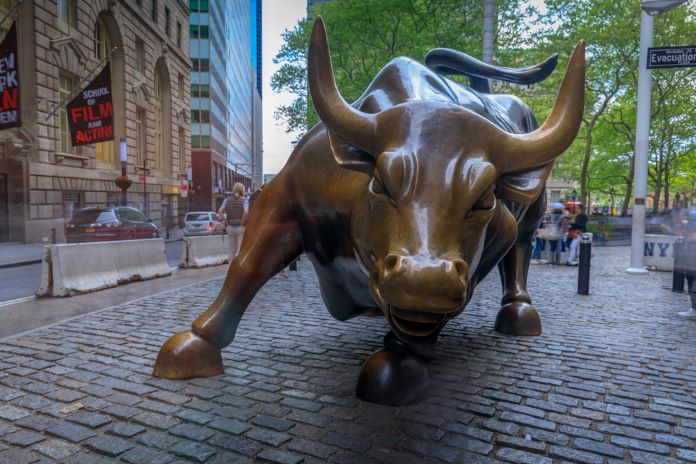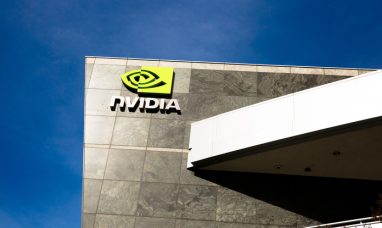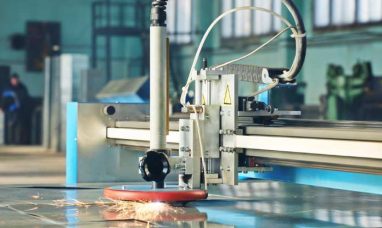“Nothing runs like a deer” – and for several years now, that has been true as Deere & Company (NYSE:DE) has enjoyed a strong bull run that most stocks would envy.
But a recent price drop has many wondering if it is time to sell … or possibly a good time to buy low. So let’s take a closer look at what is happening with the stock.
Going on a Run
Back in May 2020, Deere was anticipating a drop in revenues at the time, and its stock price was down around $150. But instead of a further decline, what came next was a surge in the share price.
Now Deere & Company (NYSE:DE) shares are trading at $312 per share, more than double what they were just two years ago.
But shares are currently down roughly a third from recent highs. So is this a good time to buy before another big Deere run? Or could the price drop even more go forward?
What History Tells Us
Deere & Company (NYSE:DE) sales decreased to just $24 billion in 2016, with operating profitability falling to $2.3 billion, from a peak of $35 billion in 2013, when operating earnings were reported at $5.8 billion.
Since then, share prices have increased as a result of the company’s 2019 revenues of $39 billion. These sales were made up of about $4 billion in fiscal revenues, more than $23 billion in sales of agricultural and turf equipment, and more than $11 billion in sales of building materials.
Even though operating profit margins improved to a healthy level of $4.4 billion and earnings were reported at $10 per share, they were still below the stock’s previous high peak back in 2013.
In hindsight, it is easy to see that in 2019, it was a good time to buy Deere & Company (NYSE:DE).
In fact, the pandemic had only a minor effect on business as full-year sales decreased by just 9% to $35 billion and change, operating profitability decreased slightly to $4.3 billion. Sales growth was already evident in the fourth quarter.
With higher tax rates and a decline in net earnings from $3.3 billion to $2.8 billion, the 2021 guidance was relatively optimistic, expecting net earnings of $3.6 to $4.0 billion.
Sales bounced back in 2021 and reached a record high of $44 billion, up 24 percent. As earnings increased to $19 per share, or $6.0 billion in dollar terms, operating earnings more than quadrupled to $7.6 billion.
Additionally, net debt was $40 billion, which included the financing unit’s financing liabilities that were this time supported by $38 billion in financing receivables. Net earnings were expected to reach $6.5–$7.0 billion in 2022 as a result of strong operating momentum that resulted in record high margins of 17 percent in 2021.
Due to these positive results, shares rose to a range of $350-$400 early in 2022, which seemed acceptable given the clear strength of the balance sheet and the $19 per share earnings, which corresponded to 20 times earnings multiple.
Has Deere Hit Its Peak?
Shares peaked at $446 per share in April of this year, but a significant decline to $312 per share has since occurred due to concerns about decreasing demand, inflation, and supply chain problems.
Deere reported its second quarter numbers in May, with revenues increasing by 8% to $23 billion so far this year, operating profits falling from $4.1 billion to $3.9 billion, and net earnings remaining constant at $3.0 billion.
Earnings per share increased slightly to $9.72 despite a nearly 2% decrease in the number of shares outstanding, and net debt increased slightly to $44 billion as a result of a few smaller mergers and acquisitions and share repurchases.
The company currently expects annual sales of $7.0-$7.4 billion, which appears to be quite robust but also includes a one-time gain of $220 million.
So in looking at all the numbers, even though the company’s valuation is only at 15 to 16 times earnings, and even though earnings are only $20 per share … it may still be slightly overpriced. That means investors may want to wait for an additional pullback before they consider buying Deere & Company (NYSE:DE).
Featured Image: DepositPhotos @artyooran.gmail.com.

















